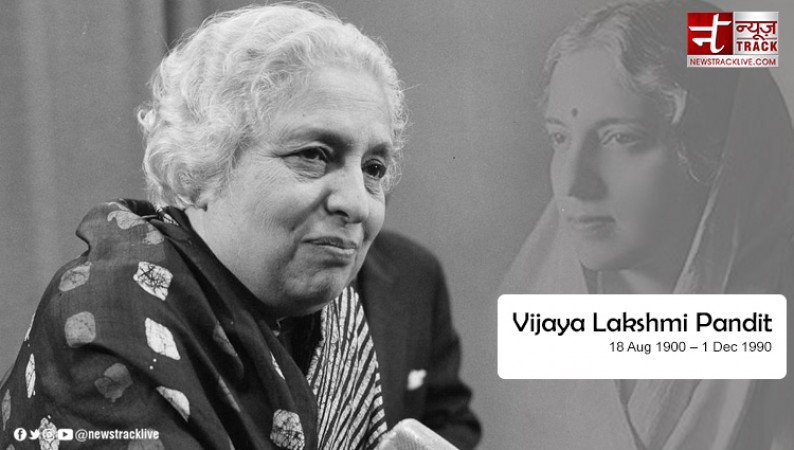
On August 18th, Indian history remembers the birth anniversary of Vijaya Lakshmi Pandit, a remarkable figure in Indian history who left an indelible mark on the realms of freedom struggle, diplomacy, and politics. Born in Allahabad, India in 1900, Vijaya Lakshmi Pandit was not only the daughter of the prominent politician and two-time president of the Indian National Congress, Motilal Nehru, but she also carved her own path as a fierce advocate for India's independence and a trailblazer for women in leadership roles.
Early Life and Education: Vijaya Lakshmi Pandit, initially known as Vijaya Lakshmi Swarup Nehru, was born into a family deeply committed to the cause of India's freedom from British colonial rule. Growing up in an environment pulsating with political discourse and fervor, she imbibed the values of social justice, equality, and self-determination from an early age. Her father's involvement in the Indian National Congress exposed her to the intricacies of national politics and fueled her passion to contribute meaningfully.
Marriage and Political Ascent: In 1921, Vijaya Lakshmi Pandit married Ranjit Sitaram Pandit, a fellow Congress member who shared her enthusiasm for the national movement. Their partnership proved to be not only personally fulfilling but also politically empowering. Together, they embarked on a journey to bring about change in the face of adversity.
Pandit's political journey took off as she assumed various roles in local government. However, her true breakthrough came in 1937 when she was elected as a member of the Legislative Assembly of the United Provinces (modern-day Uttar Pradesh). This achievement, in itself, was historic as it marked the first time a woman had secured a seat in such a prominent political position. Pandit's resilience and dedication to the cause of women's participation in governance were not only commendable but also an inspiration to countless women across the country.
Ministerial Role and Advocacy: Vijaya Lakshmi Pandit's pioneering spirit reached its pinnacle when she was appointed as the Minister for Local Self-Government and Public Health in the Legislative Assembly. This milestone made her the first woman in pre-independence India to hold a cabinet position, breaking the barriers of gender norms and societal expectations. Her tenure in this role saw her dedication to improving public health and governance, addressing critical issues that affected the common citizens.
Pandit's commitment to the fight for India's independence was unwavering. She actively participated in the Quit India movement and was a vocal advocate for India's rights on international platforms. Her eloquent speeches and impassioned advocacy gained her recognition not just within the borders of India but on the global stage as well.
Diplomatic Triumphs and Global Impact: Vijaya Lakshmi Pandit's contribution extended beyond India's borders. Her unparalleled diplomatic skills and innate leadership qualities led to her appointment as the 8th President of the United Nations General Assembly from 1953 to 1954. This groundbreaking achievement made her the first woman to hold such a position, marking a significant step forward for gender equality and women's representation in international organizations.
Furthermore, her diplomatic prowess was evident during her tenure as India's ambassador to various countries, including the Soviet Union, the United Kingdom, and the United States. Her role in fostering diplomatic ties, advocating for India's interests, and promoting a vision of a just and equitable world order was pivotal in shaping India's standing on the global stage.
Legacy and Inspiration: Vijaya Lakshmi Pandit's legacy is one of resilience, determination, and unwavering commitment to the ideals she held dear. Her life serves as a testament to the power of individuals to effect change, regardless of gender or societal constraints. Her courage to challenge conventions and her dedication to public service have left an indomitable mark on India's history.
As we commemorate her birth anniversary, let us remember Vijaya Lakshmi Pandit as a true luminary who not only blazed trails for women in politics and diplomacy but also demonstrated that unwavering conviction can reshape the course of a nation's destiny. Her life story continues to inspire generations to come, urging us to rise above limitations and work towards a more just, equal, and inclusive society.